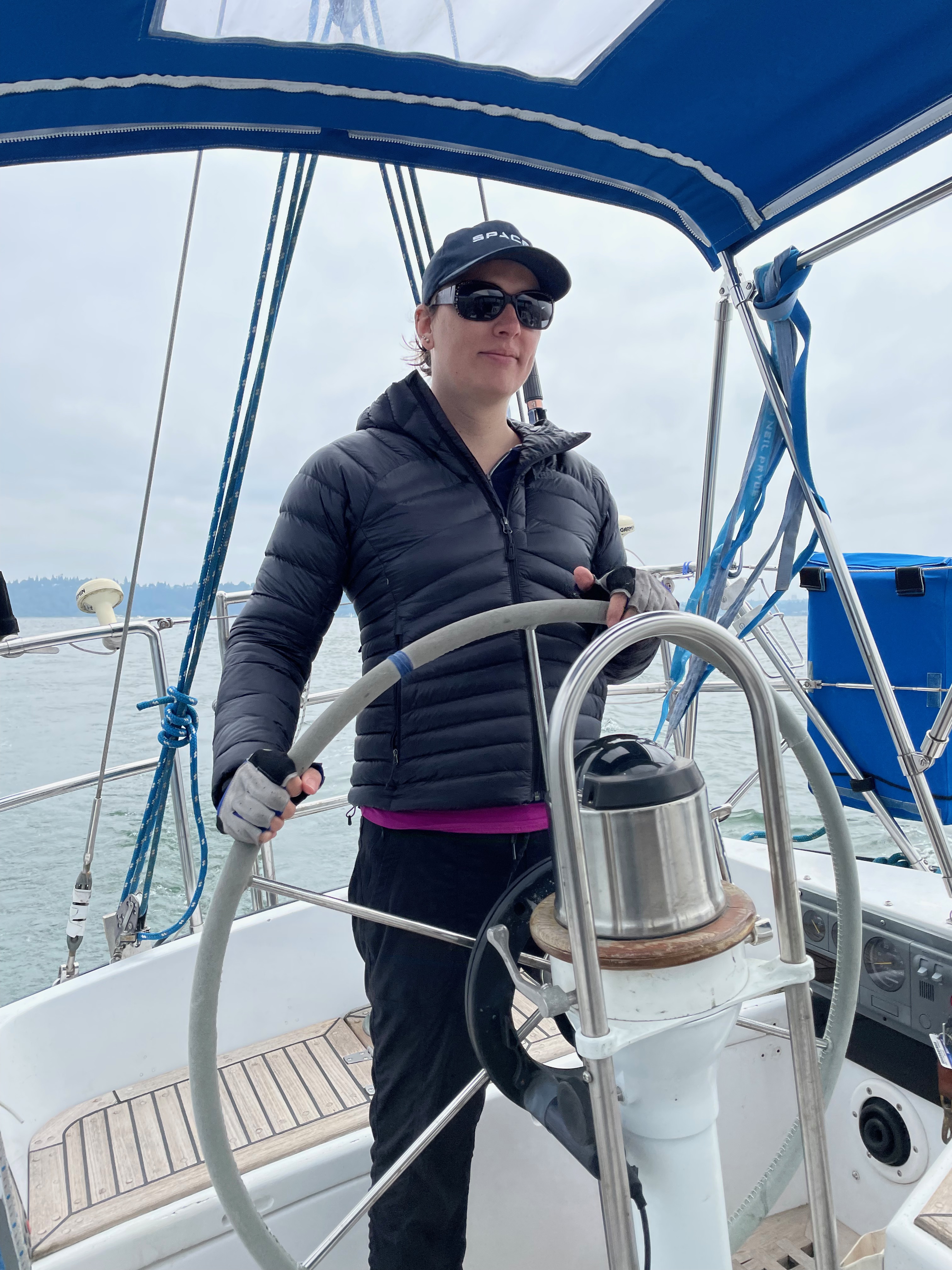It's Different When It's Yours
Post written by Marissa,Imagine if, when you put your car into reverse, it started rotating clockwise.
The first time we drove the boat by ourselves was two days after we closed on the purchase (early June). There was about 10kts of wind and slight current, but we were only moving her through the marina. It should be fine, right?
On our first attempt at docking, I decided to back in, because practice on the charter boats had shown that backing in is easier (there’s more visibility). Little did I know, Ripley walks hard to port in reverse. I was already too far to port in the fairway, and the wind was blowing us even further to port. So, on my very first docking attempt, I ended up squished against the boats on the wrong side of the fairway. Shane bravely fended us off, and no physical damage was done, but our confidence was shaken.
The second time we took her out is when we learned about her severe prop walk. Imagine if, when you put your car into reverse, it started rotating clockwise. Now imagine your car is a 38ft boat, and you’ll have an idea of how Ripley handles.
I was at the helm and not prepared for this, so we barely managed to sneak out of the slip without grinding against the dock or the neighboring boat. With these two close calls, my confidence in my ability to pilot this boat was seriously compromised. It was almost a month before I built up the confidence to try again.
Anxiety
Before we purchased the boat, I didn’t worry about going out for a sail. The charter fleet at Windworks is well maintained, and there was always someone to help us with docking. I didn’t consider how much I would have to worry about with my own boat. Very shortly after purchasing the boat, however, questions started coming up. These ranged from the reasonable to the paranoid:
- How tricky will it be to leave the slip and dock again?
- How much does it cost to rent a slip?
- Where will I keep the boat once the sublet is up?
- What happens if our sails go out and our diesel engine dies while we’re underway?
- How would I respond to a hole spontaneously opening in the hull? 😧
Before Ripley, we would always just shrug and say “well, it’s not my boat”. We no longer had that luxury.
Make a plan
Shane and I talked a lot about these feelings of anxiety. The thing that helped the most was talking though our scariest “what if” scenarios, and making a plan to deal with them. “What if she walks to port when we try to leave the slip?” We’ll use the bow line to pull her back into place. “What if we lose propulsion while out in the Sound?” We’ll sign up for BoatUS and call a tow boat. “What if we start taking on water?” We’ll run the bilge pumps, find the hole, and plug it with a wooden plug.
Forming a plan makes it easier to face the unknown, because it gives you steps to follow, rather than panic.
It just takes practice
More than anything, getting comfortable with our boat is a matter of practice. Now we know how to deal with the prop walk. We know how to pump out, and how to fill the diesel tanks. We know what she sounds like when motoring, and how she feels cutting through a big wake. Every time we go out, it gets a little easier.
